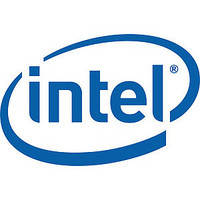SB82371 Intel Corporation, SB82371 Datasheet - Page 101

SB82371
Manufacturer Part Number
SB82371
Description
82371FB (PIIX) AND 82371SB (PIIX3) PCI ISA IDE XCELERATOR
Manufacturer
Intel Corporation
Datasheet
1.SB82371.pdf
(122 pages)
Available stocks
Company
Part Number
Manufacturer
Quantity
Price
Company:
Part Number:
SB82371SB
Manufacturer:
NSC
Quantity:
1 150
Company:
Part Number:
SB82371SB
Manufacturer:
INTEL
Quantity:
140
Part Number:
SB82371SB
Manufacturer:
INTEL
Quantity:
20 000
Part Number:
SB82371SB (SU093)
Manufacturer:
INTEL
Quantity:
20 000
A low speed length babble occurring in a frame followed by a subsequent clearing of the Run/Stop bit will
cause the host controller to lock up from which it can only be restarted by a hardware reset. A length babble
occurs when a device transmits more than the maximum number of bits as specified in the transfer
descriptor. An EOF babble occurs when a device transmits past the frame EOF time point. This condition
does not exist if an EOF babble occurs. If this occurs, the USB host controller can not be restarted, disabling
the system from performing any further USB transactions. A software workaround can prevent a length
babble from being recognized by the host controller for low speed transactions. The software will then be
responsible for detecting the occurrence of a low speed length babble. The host controller detection of low
speed length babble is prevented by setting the Max Packet Length field in each low speed transfer
descriptor to a value greater than the actual number of low speed bytes that can be sent in a frame
(approximately 200). The software will detect the babble by comparing the Actual Length recorded in the
transfer descriptor with a value representing the true Max Packet Length for the endpoint.
Low Speed Length Babble will cause USB Port Disable. If a low speed length babble (see description above)
occurs in a frame, the root hub through which it is attached will be disabled. This is a normal condition for a
babble which exceeds past the EOF point, but is an incorrect condition for length babbles occurring within a
frame. This means the USB port which is disabled will not receive subsequent packets until the port is
reenabled by software. This condition can be corrected using the procedure described above.
A bit stuff error occurs on a USB transaction transferring data from the USB device to the PIIX3. The bit stuff
occurs, but with wrong data value (extra stuff bit was a 1 instead of 0). The data and CRC value are
transferred correctly with no errors. The PIIX3 will detect the bit stuff error, discard the data, clear the Active
bit, and set the Bit Stuff Error bit. The PIIX3 will incorrectly acknowledge (ACK) the transfer to the USB
device, will not update the queue header, and does not set the Stall bit. This condition can occur if the USB
device inserts the wrong stuff bit or if noise on the USB subsystem causes only this single bit to change. This
means the USB device’s data toggle bit will become out of “sync” with the host schedule’s data toggle bit.
This will effectively result in a stalled USB device endpoint, halting data transfers to or from the USB device.
The USB host controller software (UHCI drivers) must check for a set Bit Stuff Error bit with no corresponding
Stall bit set or simply check for an inactive transfer descriptor with a non-zero status field. When this condition
is detected, the USB host controller software must stall the device endpoint and reinitialize the USB device.
If PCI latency at the end of a USB transaction pushes the status update beyond the start of the next frame,
then the Babble, NAK, and Timeout error condition detection may be delayed by one frame. There is no
visual effect on functionality of performance. An alternative method of status monitoring in software is
necessary for immediate detection. Each of the 3 conditions can be detected as described below.
1.
2.
3.
More information concerning the PIIX3 USB Host Controller operation can be found in the Universal Host
Controller Interface Design Guide, available from Intel Literature Center as document number 297650.
NAK Status: If the Active bit is set then no patch is needed as the transaction will be automatically
retried.
Babble Status: If Error Count <> 0, which precludes CRC/Timeout conditions and no other status bits
are set other than the Stalled bit, precluding Bit Stuff and Data Buffer conditions, then treat this Babble
condition like a Stall.
Timeout Status: If the Stalled bit is set and Error Count = 0 AND either there is no Data Buffer error or
there is no Bitstuff error, then treat this condition as a CRC/Timeout error.
82371FB (PIIX) AND 82371SB (PIIX3)
101












